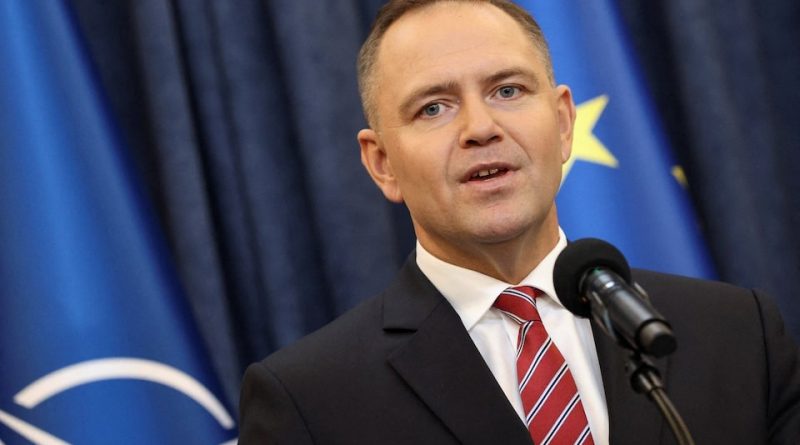Poland Says Any Ukraine Peace Agreement Must Be Approved by Kyiv
Warsaw — Poland emphasized that any roadmap to end the conflict in Ukraine must have full approval from Kyiv, reaffirming its stance amid growing international discussion surrounding proposed frameworks for peace.
The statement came after signals from the United States suggesting that Ukraine should accept a draft plan outlining territorial concessions and future security limitations.
Polish President Karol Nawrocki said that the right to decide the terms of peace belongs first and foremost to the Ukrainian people.
He stressed that Ukraine, as the nation directly affected by the conflict, must retain full authority in any negotiations shaping its future.
His remarks followed reports of a proposed U.S. framework consisting of multiple points, including territorial adjustments and constraints on Ukraine’s military capabilities.
The draft also includes elements that may be rejected by Moscow, particularly the requirement for a withdrawal of forces from occupied eastern regions.
President Nawrocki underscored that Ukraine’s sovereignty and territorial integrity cannot be compromised under external pressure.
He reiterated that international partners should support Kyiv’s decisions rather than impose predetermined outcomes.
He noted that Ukraine has endured the consequences of military aggression and that its leadership must therefore guide any discussion on ending hostilities.
Nawrocki also highlighted the broader commitment of European nations to respect Ukraine’s choices in the pursuit of peace.
The plan referenced by international officials contains provisions that have drawn widespread debate within diplomatic circles.
Some argue that the proposal aims to accelerate an end to the conflict, while others warn that it could set troubling precedents for territorial disputes.
Poland has taken a consistent position throughout the conflict, backing Ukraine politically, militarily, and diplomatically.
Nawrocki reaffirmed that this support remains guided by principles of justice, national sovereignty, and regional stability.
He stressed that peace must not come at the cost of rewarding aggression or allowing military force to dictate borders.
Any agreement that undermines these principles, he warned, risks creating instability throughout Europe.
The Polish president also addressed the responsibility of larger powers involved in the discussions.
He insisted that decisions impacting Ukraine’s future should not be negotiated over the heads of those directly affected.
Nawrocki stated that peace talks must not legitimize the strategic aims of those who initiated the conflict.
He reiterated that the aggressor cannot be granted gains that would encourage similar actions in the future.
With the war entering another winter, discussions about potential diplomatic solutions have intensified across Europe and the United States.
However, the tone of recent proposals has raised questions about how far Ukraine’s allies are willing to go in balancing diplomacy with principles of sovereignty.
Nawrocki’s comments reflect growing concerns within Eastern European countries that proposals involving territorial concessions could weaken the security of the region overall.
They argue that long-term peace depends on upholding legal norms and rejecting any outcome that legitimizes annexation by force.
The Polish leader concluded by affirming that Kyiv retains the central role in defining its own peace strategy.
He said that international support should bolster Ukraine’s negotiating position, not pressure it into accepting terms that contradict its national interests.
He added that Poland will continue to advocate for a peace agreement that reflects the will of the Ukrainian people and ensures lasting stability in Europe.
For Warsaw, peace achieved through compromise that rewards aggression is not sustainable and does not align with the values shared by Ukraine and its allies.


